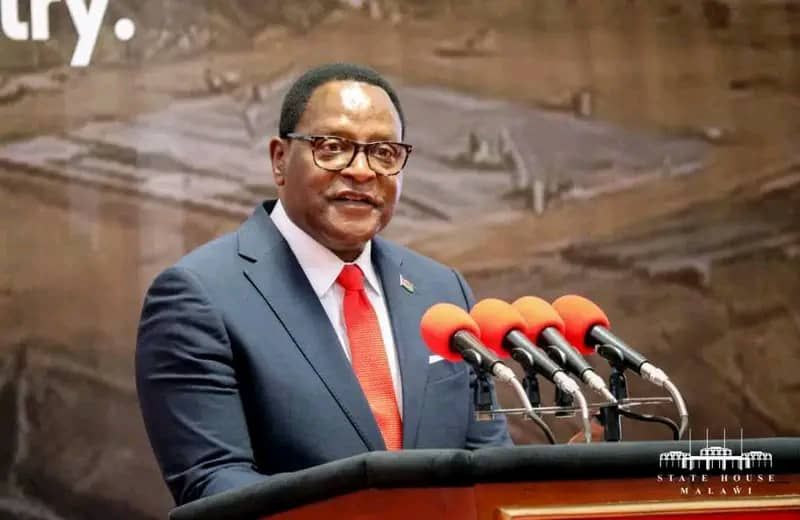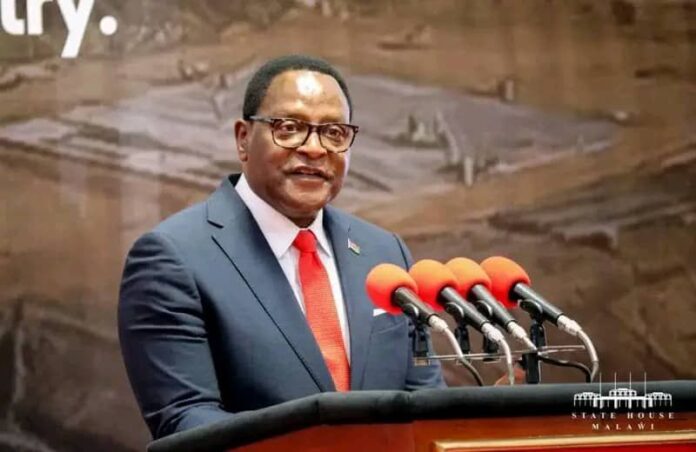By Burnett Munthali
President Lazarus Chakwera has stirred a national conversation after publicly denouncing Malawi’s controversial quota system for university admissions, branding it an “evil policy” that has sown seeds of division, discrimination, and inequality among Malawians for decades.
Speaking candidly during a recent engagement with education stakeholders and youth leaders in the Northern Region, the president did not mince words in expressing his long-standing opposition to the system, which he said contradicts the values of meritocracy, national cohesion, and fairness.

The quota system, originally designed as an affirmative action framework to ensure equitable regional representation in higher education, has become one of the most polarizing policies in the country.
Introduced in the 1980s, it was meant to address historical imbalances and disparities in access to tertiary education across Malawi’s regions.
However, over time, the system has been widely criticized for entrenching regionalism, disadvantaging students from certain areas—particularly the Northern Region—and compromising academic standards.
President Chakwera’s remarks come at a time when the debate around equity versus equality in education has resurfaced with renewed urgency.
Addressing the concerns of young people who feel disenfranchised by the policy, the president affirmed his government’s commitment to building a society where every child, regardless of their region of origin, has an equal opportunity to succeed based on merit.
“Any policy that punishes children simply because of where they come from is not only unjust but evil,” Chakwera declared.
“We must be bold enough to do away with anything that divides us and perpetuates inequality.”
The president’s firm position was received with both applause and caution.
For many in the Northern Region—who have long argued that the quota system is a form of institutionalized discrimination—the president’s remarks were a long-awaited validation of their struggle.
Critics of the system argue that it has disproportionately affected high-performing students from the North, denying them university placements despite excellent grades, while students from other regions with lower marks were admitted.
The resulting disillusionment has not only bred resentment but has also driven many bright minds out of the country in search of fairer opportunities.
Yet, defenders of the quota system argue that it has helped open doors for students from underserved districts in the Central and Southern Regions who might otherwise be marginalized due to historical disadvantages in access to quality primary and secondary education.
They maintain that without such a system, Malawi risks entrenching elitism and regional monopolies in education, especially in a context where resources and opportunities remain unevenly distributed.
But Chakwera pushed back against this rationale, stating that efforts to promote inclusivity in education should not come at the cost of excellence and merit.
Instead of applying a blanket policy that penalizes certain groups, the president urged stakeholders to invest more in improving the quality of education across all regions—from primary schools to community day secondary schools—so that all children are equipped to compete fairly.
“Equality of opportunity must start at the grassroots.
Let us uplift our rural schools, equip our teachers, and make sure that every Malawian child receives the same quality of education,” he said.
In recent years, Malawi has seen various education reforms aimed at enhancing access and quality.
However, structural challenges such as overcrowded classrooms, teacher shortages, poor infrastructure, and resource gaps have continued to widen the educational divide.
President Chakwera emphasized that the answer does not lie in punitive quota mechanisms, but in bold, systemic investments that level the playing field for all learners.
The president’s speech has reinvigorated discussions in the education sector and among political commentators.
Some observers see his stance as a signal that government may soon initiate formal processes to abolish the quota system altogether or replace it with a more nuanced policy that balances regional equity with individual merit.
Others, however, remain skeptical, warning that past governments have made similar promises but failed to act decisively due to political sensitivities.
Meanwhile, the president’s words have been interpreted by many as a call to unity—a reminder that Malawi’s strength lies in its diversity, and that national progress requires the inclusion and empowerment of all its citizens.
He challenged Malawians to rise above parochial interests and confront inherited injustices with honesty and resolve.
“We must break the chains of the past,” Chakwera said.
“Let us not allow any child’s dreams to be shattered because of a policy born out of fear and favoritism.”
For students like Annie Banda from Mzuzu, who scored top marks in her Malawi School Certificate of Education (MSCE) exams but was denied a university spot due to the quota allocation, the president’s message came as a ray of hope.
“I feel seen,” she said.
“For once, a leader is acknowledging our pain.
I just pray they act on it.”
As Malawi moves forward, the fate of the quota system remains uncertain.
What is certain, however, is that the president has ignited a necessary national dialogue about fairness, unity, and the kind of future Malawians want for their children.
Whether the bold words will translate into concrete action remains to be seen—but for now, President Chakwera’s denouncement of the quota system as evil has marked a pivotal moment in the country’s journey toward educational justice.



